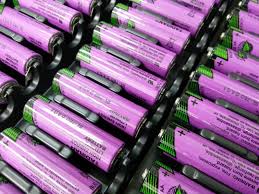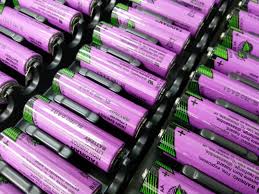
Following concerns from pilots that they constitute a tangible risk for on board fires, the International Civil Aviation Organization has placed a ban on the cargo shipment of lithium-ion batteries on passenger aircrafts.
The prohibition would come into effect as of 1 April this year and has been announced to remain in force until a new fire-resistant packaging standard was designed to transport the batteries, said the International Civil Aviation Organization’s 36-state governing council on Tuesday.
However the International Civil Aviation Organization said that cargo planes can be used to transport the lithium-ion batteries which are rechargeable and widely used in many electronic devices including smart phones.
The ban however is of a temporary nature. The ICAO council president Olumuyiwa Benard Aliu said in a statement that the new packaging standard for the lithium-ion batteries that would make its transportation in the cargo hold of passenger planes safe, was expected by 2018.
All the 36 states that are members of the ICAO would have to implement the ban, said the international agency. It is also expected that other countries would also soon follow the ban announced by ICAO.
Lithium-ion batteries that are not rechargeable have already been banned to be carried on planes.
There have been concerns expressed by many pilots and aircraft manufacturers about the existing standards of safety measures for lithium-ion rechargeable batteries which they claim are not strong enough to contain lithium battery fires.
The current firefighting systems on airliners could not “suppress or extinguish a fire involving significant quantities of lithium batteries”, concluded a 2015 working paper by an organisation representing plane makers like Boeing and other major plane makers.
However questions have been raised about whether a ban on lithium-ion batteries would make passenger planes safer by one dangerous goods expert familiar with ICAO’s thinking. Deliberate mislabelling by shippers is the primary cause of instances of such battery fires, he said.
“When the industry banned the shipment of lithium-metal batteries, we saw instances of them being passed off as lithium ion batteries. Those people who are not complying now won’t comply with a prohibition,” said the expert, who was not authorized to speak publicly.
However the average air passenger has nothing to worry about as the ban doesn’t apply to the batteries they carry in their luggage or on their devices. The real concern about fire safety of the lithium-ion batteries is primarily due to the close packing of cells that can cause a chain reaction if a single battery suffers from thermal runaway.
(Source: www.theguardian.com & www.reuters.com)
The prohibition would come into effect as of 1 April this year and has been announced to remain in force until a new fire-resistant packaging standard was designed to transport the batteries, said the International Civil Aviation Organization’s 36-state governing council on Tuesday.
However the International Civil Aviation Organization said that cargo planes can be used to transport the lithium-ion batteries which are rechargeable and widely used in many electronic devices including smart phones.
The ban however is of a temporary nature. The ICAO council president Olumuyiwa Benard Aliu said in a statement that the new packaging standard for the lithium-ion batteries that would make its transportation in the cargo hold of passenger planes safe, was expected by 2018.
All the 36 states that are members of the ICAO would have to implement the ban, said the international agency. It is also expected that other countries would also soon follow the ban announced by ICAO.
Lithium-ion batteries that are not rechargeable have already been banned to be carried on planes.
There have been concerns expressed by many pilots and aircraft manufacturers about the existing standards of safety measures for lithium-ion rechargeable batteries which they claim are not strong enough to contain lithium battery fires.
The current firefighting systems on airliners could not “suppress or extinguish a fire involving significant quantities of lithium batteries”, concluded a 2015 working paper by an organisation representing plane makers like Boeing and other major plane makers.
However questions have been raised about whether a ban on lithium-ion batteries would make passenger planes safer by one dangerous goods expert familiar with ICAO’s thinking. Deliberate mislabelling by shippers is the primary cause of instances of such battery fires, he said.
“When the industry banned the shipment of lithium-metal batteries, we saw instances of them being passed off as lithium ion batteries. Those people who are not complying now won’t comply with a prohibition,” said the expert, who was not authorized to speak publicly.
However the average air passenger has nothing to worry about as the ban doesn’t apply to the batteries they carry in their luggage or on their devices. The real concern about fire safety of the lithium-ion batteries is primarily due to the close packing of cells that can cause a chain reaction if a single battery suffers from thermal runaway.
(Source: www.theguardian.com & www.reuters.com)





